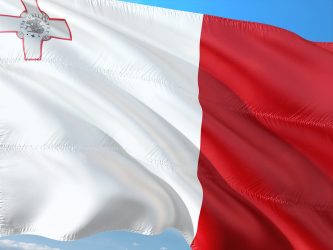 The Maltese gaming industry contributed €1.56bn to the country’s economy, up 9.6% year-on-year, according to the Malta Gaming Authority (MGA)’s latest 2019 annual report.
The Maltese gaming industry contributed €1.56bn to the country’s economy, up 9.6% year-on-year, according to the Malta Gaming Authority (MGA)’s latest 2019 annual report.The report also revealed the MGA has drastically ramped up enforcement action, cancelling 14 licences in 2019, while the number of companies in operation increased by 3.9% to 294 but remained below 2017 levels.
The €1.56bn in value added – the total value of goods and services produced by the gaming industry, minus the total value consumed – made gaming the third-largest private-sector contributor to the Maltese economy, behind retail, accommodation and food, and professional services.
“Furthermore, gaming contributes to the generation of value added through linkages to other major sectors, including professional services, financial and ICT activities, hospitality and catering services, distributive trades and real estate,” the MGA added.
The gaming industry directly accounted for 7,417 jobs in 2019, up 9.2% year-on-year. Of these 7,417 jobs, 6,593 were in the online gaming industry.
While the MGA did not announce overall gaming revenue for the industry, it did break down online revenue by game type.
Type 1 (player-versus-house casino) games, brought in the majority of revenue, at 56.0%, up from 55.4% in 2018. Of these games, slots were the most popular, bringing in 74.4% of Type 1 game revenue, while table games brought in 21.5%.
Type 2 games (sports betting) brought in 36.3% of revenue, down from 39.0% in 2018. Football contributed 76.4% of this total, with tennis at 7.7% and basketball at 5.9%.
Type 3 (player-versus-player) games brought in 7.7% of revenue, of which 81.9% came from poke and 10.3% came from betting exchanges. The MGA also offers type 4 licences for controlled skill games, but said revenue from this vertical was negligible.
The number of active player accounts with Malta-licenced online operators grew 12.7% to 20.4m.
The MGA tightened its enforcement measures during 2019, cancelling 14 licences, up from 8 in 2018 and 3 in 2017. In addition, the regulator suspended a further 11 licences, compared to 11 in 2018.
“In 2019, a great focus was placed on ensuring that the Authority’s governance and structure reflected the increased focus on compliance and enforcement,” MGA chief executive Heathcliff Faruggia said. “More resources were given to compliance, with the scope of implementing the risk-based approach towards regulation more effectively.”
The total number of licensed companies in Malta increased from 283 in 2018 to 294 in 2019. However, this remained below the figure of 296 in 2017. The total number of licences in use increased from 286 to 298.
A total of 53 new gaming licences were issued, out of 89 applications. While this was well below the 93 issued in 2018, the MGA said this was due to changes in its licensing system from August 2018, which meant operators who are already in possession of a gaming service or critical gaming supply licence would no longer need new certification if they wished to offer products covered by a different licence class.
Faruggia added that in 2019, the MGA started undertaking ad hoc responsible gambling audits.
“These audits have so far proved an effective means of ensuring the effectiveness of the safeguards required by law as implemented by that specific licensee, and they continue to better inform the Authority on the measures it needs to take to achieve its objective of protecting vulnerable persons,” Farruggia said.
The regulator made €81.7m in revenue in 2019, up 8.6%. The majority of this came from compliance contributions and levies, which came to €72.3m, up 8.1%. Licence fees brought in €8.1m, up 16.1%, while licence application fees rose 16.6% to €477,605, and revenue from other sources fell 14.9% to €817,276.
The MGA’s expenses came to €13.2m, of which €7.2m were staff costs, while the MGA incurred a further €1.2m in both general and administrative costs and depreciation and amortisation.
Looking ahead, the MGA has conducted a survey of licensees in April 2020, to assess the impact of novel coronavirus (Covid-19) on the gaming industry. According to 151 B2C operators polled, gaming revenue is expected to drop by 12% in 2020, due mostly to a drop in sports betting revenue. That vertical alone is set to see revenue decline by up to 40%, according to the industry.
Meanwhile, the 64 B2B suppliers surveyed said they expected a revenue decline of 20%.
“Already, the emphasis on the protection of vulnerable players has taken on an even greater importance with the disruption of everyday life and the financial uncertainty that many people are experiencing,” Faruggia said. “At the same time, the pressures of operational costs are being felt ever more strongly by the industry, which has to adapt to the new reality.
“The Authority’s efforts in ensuring not only that regulated operators are compliant and responsible throughout, but also that unregulated operators that endanger the general public and generate illicit proceeds are not allowed to operate, will continue to be topmost priorities.”












